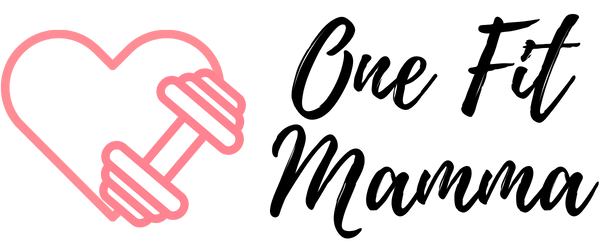Pregnancy is one of the most rewarding and challenging times in a woman’s life. During and even after this time, your body will encounter various changes that work towards supporting the life that you are carrying within.
One of the most prominent changes that expecting mothers experience during and after pregnancy is their breasts. As a matter of fact, this is one of the tell-tale signs that point to one’s pregnancy as it signals how the body makes way to prepare the milk supply of the baby.
From your breasts getting bigger to your nipples changing color, there are changes that you have to deal with both during and after your pregnancy. As such, it’s important to learn how to take care of your breasts even at the onset to ensure that your boobs are in tiptop shape. Take a look at how you can do this in the article below.
- Find a Good-Fitting Bra
- Use Cold Water to Soothe Your Breasts
- Practice the Proper Breastfeeding Approach
- Do Strength Training Exercises
- Perform Regular Breast Exams on Yourself
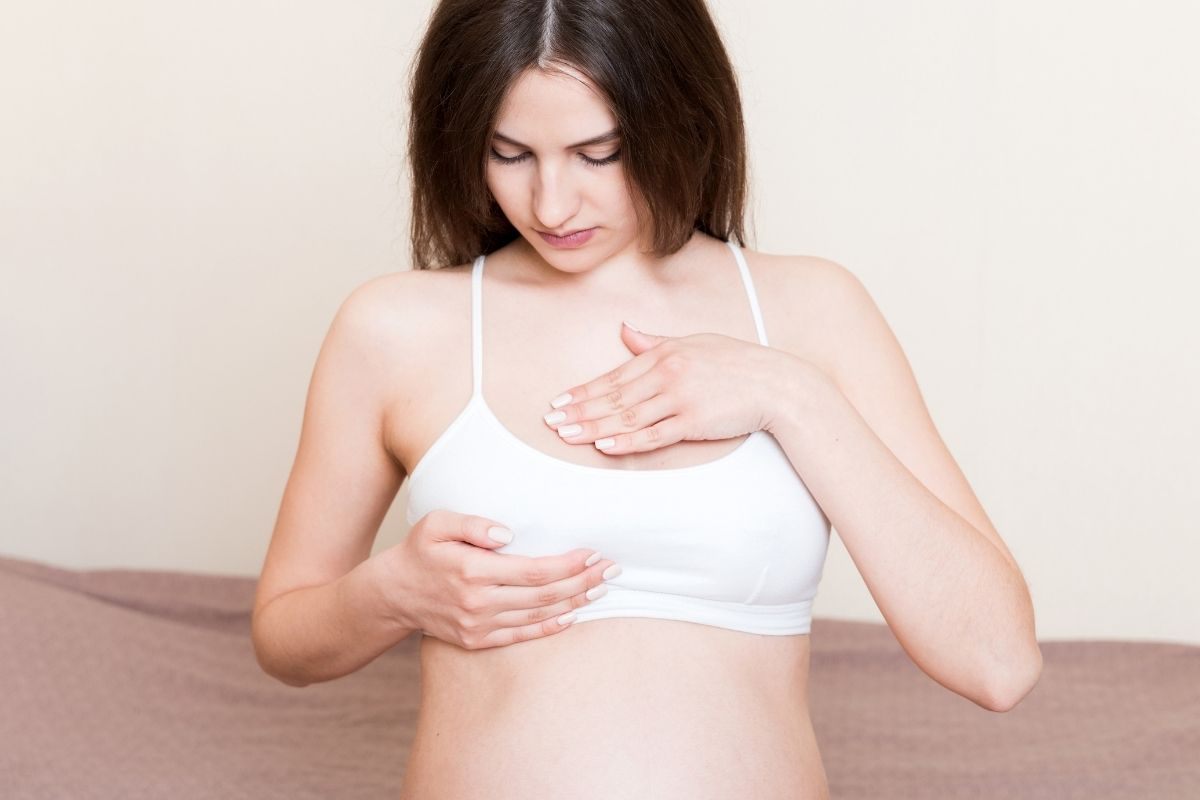
Find a Good-Fitting Bra
Even before you’re pregnant, finding a good-fitting bra is important in your day-to-day life. After all, ill-fitting bras have been known to give not only back and shoulder pain, but also neck strains and pain. Plus, it also leads to bad posture and a lack of support, and worse, even constriction.
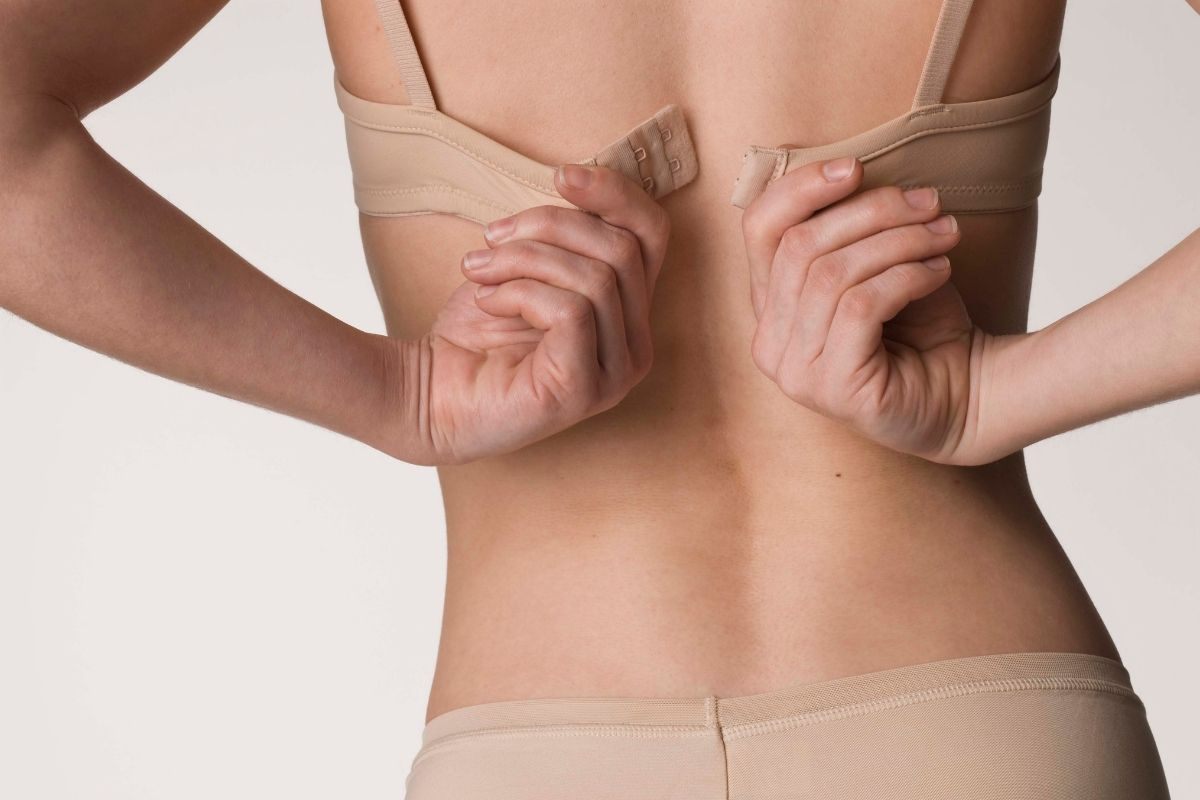
A good-fitting bra should provide the right support for your boobs. You should feel comfortable wearing it throughout the day and feel confident in it. At the same time, it should have ample support and provide shape to your breasts.
With your pregnancy underway, you can expect your breasts to grow bigger over the next few months. They can even become sore in the process. While you may wear bras with wires, opting for adjustable and wire-free bras may feel more comfortable and can be more forgiving in terms of different sizes.
Having the right kind of bra is also key when you’re already pregnant and breastfeeding. This way, you can make sure that it can support its growing weight and that you still have access to your boobs when your baby needs them. While you’re at it, choose soft and breathable fabric for maximum comfort.
Ensure That Good Hygiene Is Observed
Once you have chosen the right bra, that doesn’t mean you’re going to stop there. You should always take the time to keep your breasts, as well as the rest of your body, clean and hygienic. The area under the breasts can get sweaty, so keeping it fresh and clean should be a priority.
To do this, you should avoid touching your breasts as much as possible, especially when you have not washed your hands. Likewise, it’s best to take a shower or a bath to thoroughly clean your boobs. Besides practicing good hygiene, being more mindful of the products being used on your breasts and body is something to take note of.
While scented products are indeed aromatic, the scents used on them can cause irritation and allergies. Meanwhile, using soap can also dry out the skin and take away the natural oils produced within the mammary glands, so individuals are advised to steer clear from these as well. Instead, just stick to warm water.
Use Cold Water to Soothe Your Breasts
If you’re cleansing our breasts and body, warm water is best to help rid the more sensitive parts of your boobs of dirt and grime. Using hot water, however, has the tendency to further dry out your skin, so try to steer clear of this.
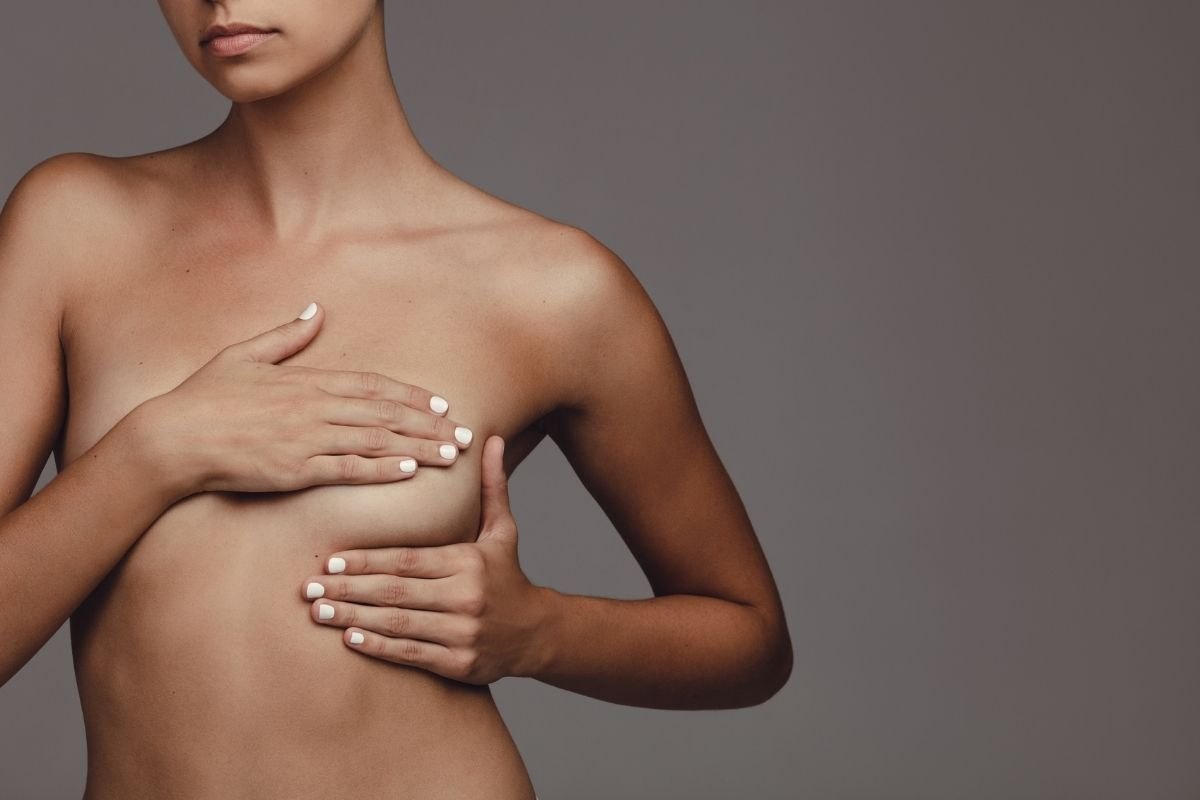
Top off your bath with cold water. Using a circular motion, pour a steady stream of cold water into the chest area.
This helps soothe the chest area which can grow painful as your breasts become engorged during your pregnancy. This can also tone your skin and provide relief to itchy skin.
Hydration Is Key
As your breasts grow, they can become itchy and even grow stretch marks over time. While these are absolutely normal and a part of life, they can be unsightly or bothersome to some mothers or pregnant women who want to look their best.
To prevent amplifying the appearance of these stretch marks or to help remove the dryness, moisturizing and hydrating your skin is essential. After taking a bath or cleansing your chest area, gently pat the excess water and apply moisturizer or hydrating creams right away.
Doing this prevents transepidermal water loss. By hydrating the body, as well as avoiding drying soaps and skincare products, you can nourish your skin and minimize the itchiness and stretch marks on your skin.
Practice the Proper Breastfeeding Approach
Upon the arrival of your new bundle of joy, you’ll be surprised by how much your body is ready to nourish and feed your baby. This is why your breasts have been changing over the past few months. Although breastfeeding may come naturally, you need to make sure that your baby is latching on to your breast properly.
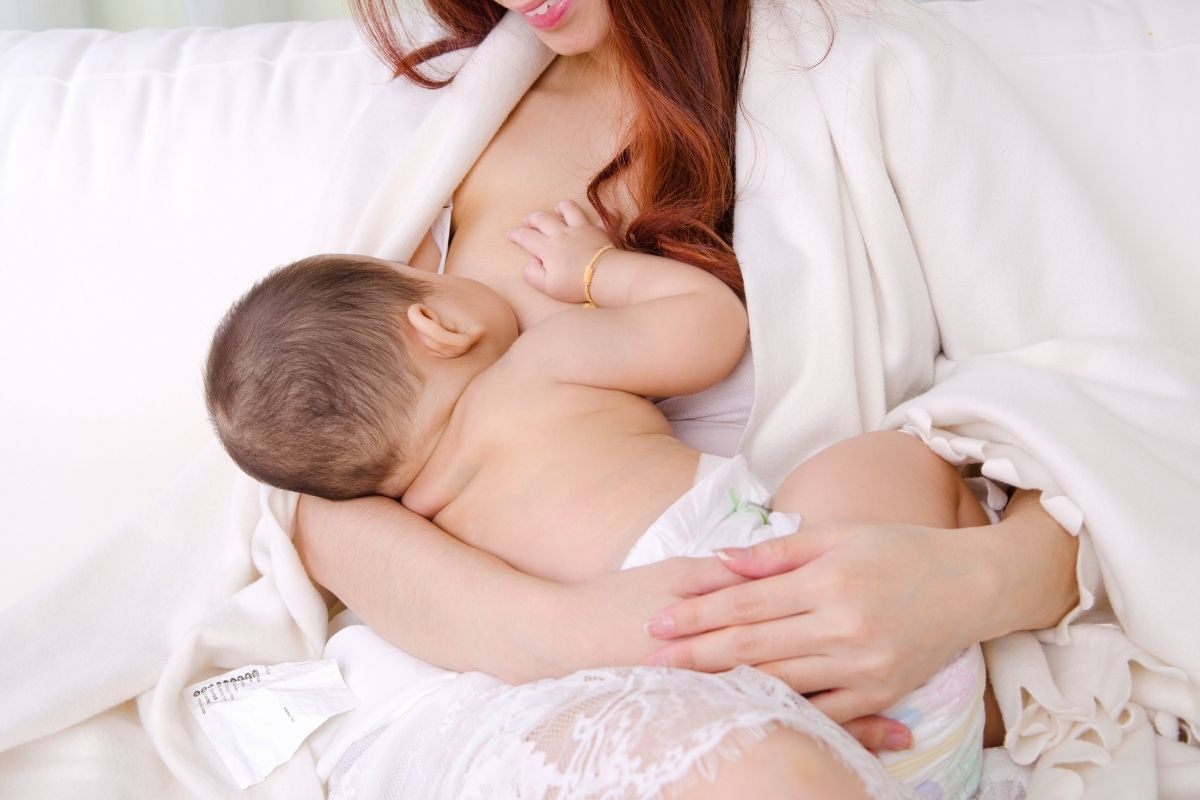
This means that their mouth must cover the whole areola instead of just the nipple itself. This way, you can reduce or even prevent the pain that comes with breastfeeding. Proper latching also helps take care of nipple and or breast soreness, mastitis, and getting clogged milk ducts.
Cracks in the nipples or breasts, as well as engorgement, can likewise be prevented with the right breastfeeding approach. In addition to this, learning how to remove your baby from your breast is just as important as helping them latch. To do this, put your finger in the corner of their mouth to give space between your breast and their mount.
Since we’re big on hygiene here, you should always take the time to wipe your breast with a soft towel or cotton pad and apply a moisturizing cream after breastfeeding. This will prevent cracks from forming or from drying out the moisture levels on your breast.
Address Sore and Engorged Breasts
Your breasts and nipples can get sore and engorged. Whether it be from the clogged milk ducts or when your baby fails to latch properly, your breastfeeding journey and your boobs can be affected.
To address this, one thing you can do is constantly nurse your precious one or pump and store your milk. This helps relieve some of the built-up pressure in your breasts. Alternatively, you can also apply a cold compress to help soothe and relieve the pain.
For treating sore nipples, however, you can use your breast milk or nipple cream. Hydrogel pads and lanolin are also viable options you can use, but only under the approval and supervision of your doctor.
Do Strength Training Exercises
Pregnant women, especially those who are already deep into their journey, aren’t exactly allowed to do strenuous physical activities. In fact, their normal activities may even be limited. However, those who gain the approval of their doctors should try doing small physical exercises before or even after giving birth.
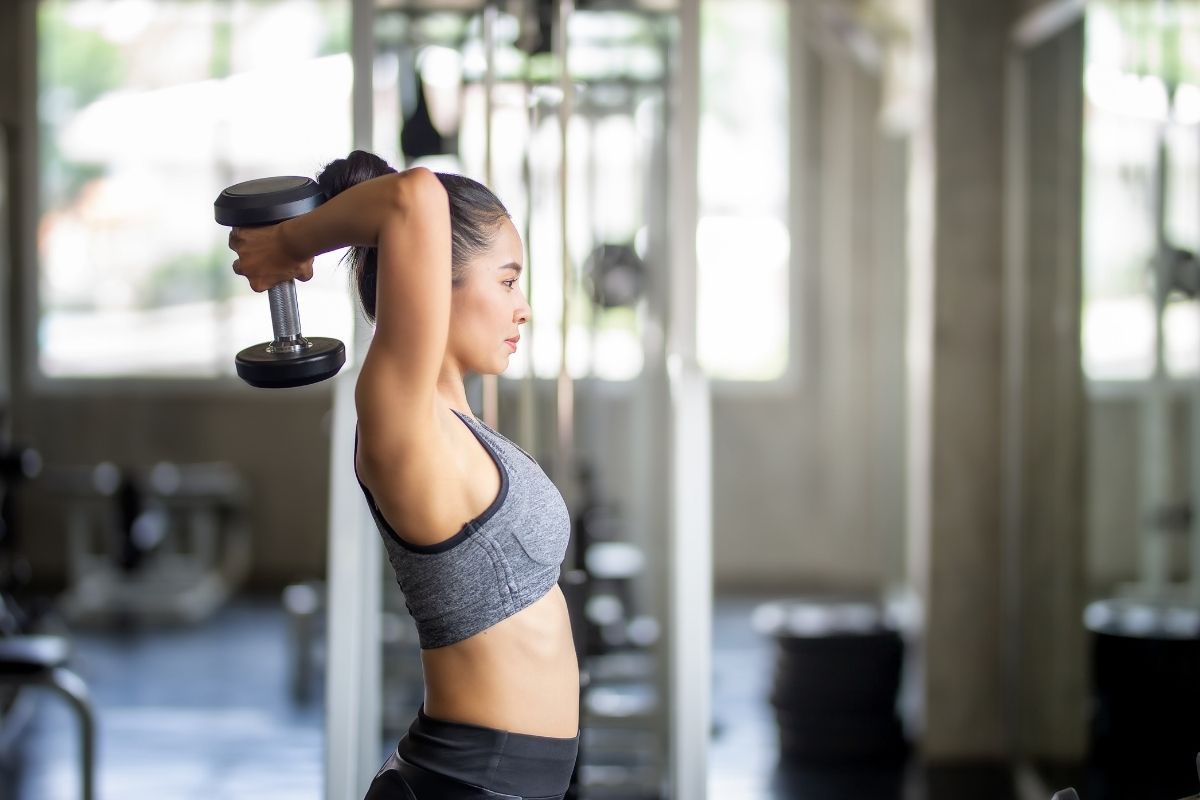
Those who want a slow-paced approach may want to try their hand at prenatal yoga, going on long walks, or even swimming leisurely at the pool. These are great ways to help keep you active while also allowing you to help maintain the elasticity, shape, and tone of your chest area.
If these aren’t allowed, you can also try doing some simple exercises that only require minimal movement. One of these even allows you to do this while sitting down with your back straight. Just spread your elbows and place your palms together.
After your pregnancy, you might find your breasts to be sagging. Help tone your chest and even the rest of your body as well by doing strength training. Some strength training exercises can also be done during your pregnancy, but be sure to consult your doctor to identify what’s safe for your pregnancy journey.
Adopt a Healthy Lifestyle
Apart from exercise, you can also supplement your workouts with a healthy diet.
Although it’s easy to allow your cravings to take over, trying to consume a balanced diet rich in vegetables and fruits will help you take care of your body, including your breasts.
Hydrating your skin isn’t just about moisturizing with creams and oils. You can also nourish your body from within by drinking tons of water every single day. This ensures that you and your baby are well hydrated and nourished.
Perform Regular Breast Exams on Yourself
Lastly, nursing moms like you should always conduct breast self-examinations regularly. You can do this on a monthly basis to gauge the normalcy of your breasts, when while you are still breastfeeding.
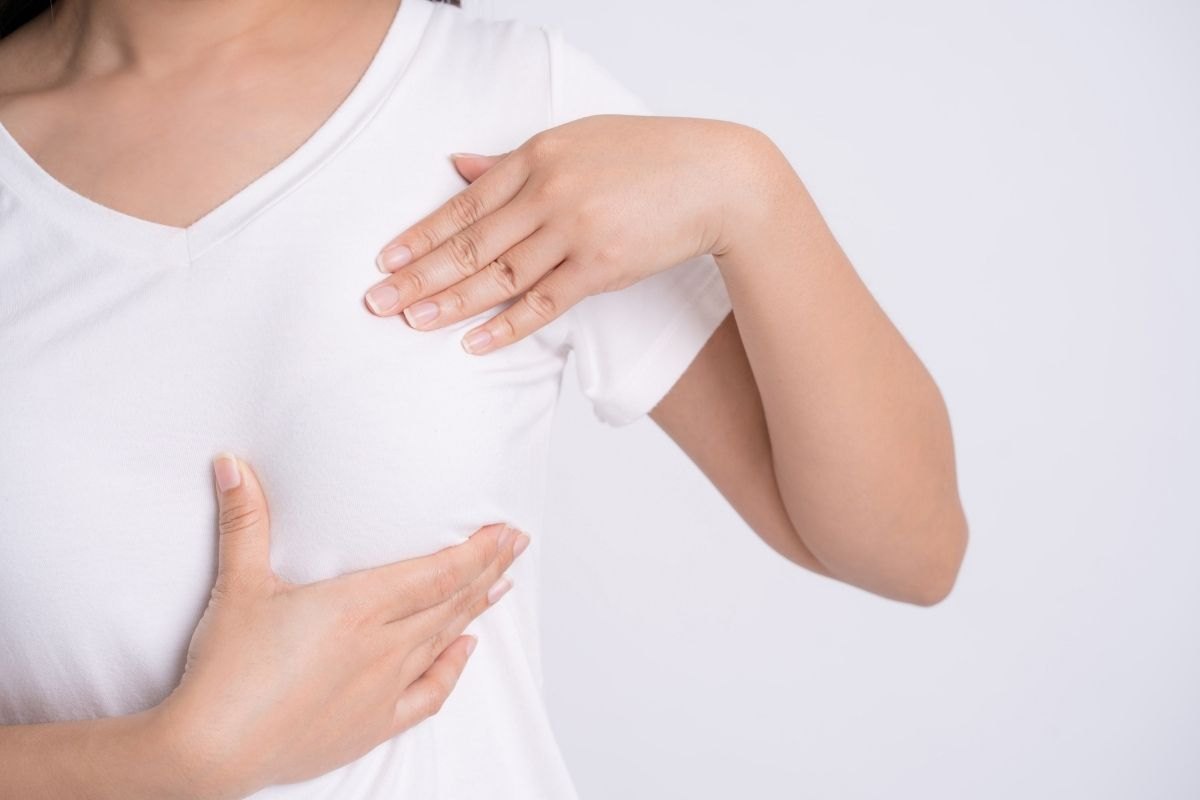
Bear in mind that you may feel some lumps or clogged ducts when your breasts are filled with milk. These will go away once you have already fed your baby or have pumped the extra milk.
If you happen to notice some lumps even after expressing your breastmilk, this may be a cause to consult a doctor and have your chest examined right away.
These lumps may be caused by mastitis or clogged milk ducts, fibroadenoma, or breast abscesses.
Pay Attention to the Following
Apart from lumps on your breast, you should also look for other signs of breast cancer even during or after your pregnancy. These include chronic breast pain and swelling or warmth on your breast.
Other symptoms you may want to check regularly include nipple discharge, a change in your breast’s texture, size, shape, or overall appearance, the appearance of a rash, or some itchiness or redness on your boobs.
Final Thoughts
Your breasts tend to change during and after pregnancy. By learning how to take care of your breasts, you can take charge of your health and even that of your baby. This is important, even if you one of the mothers who cannot breastfeed or choose not to.
